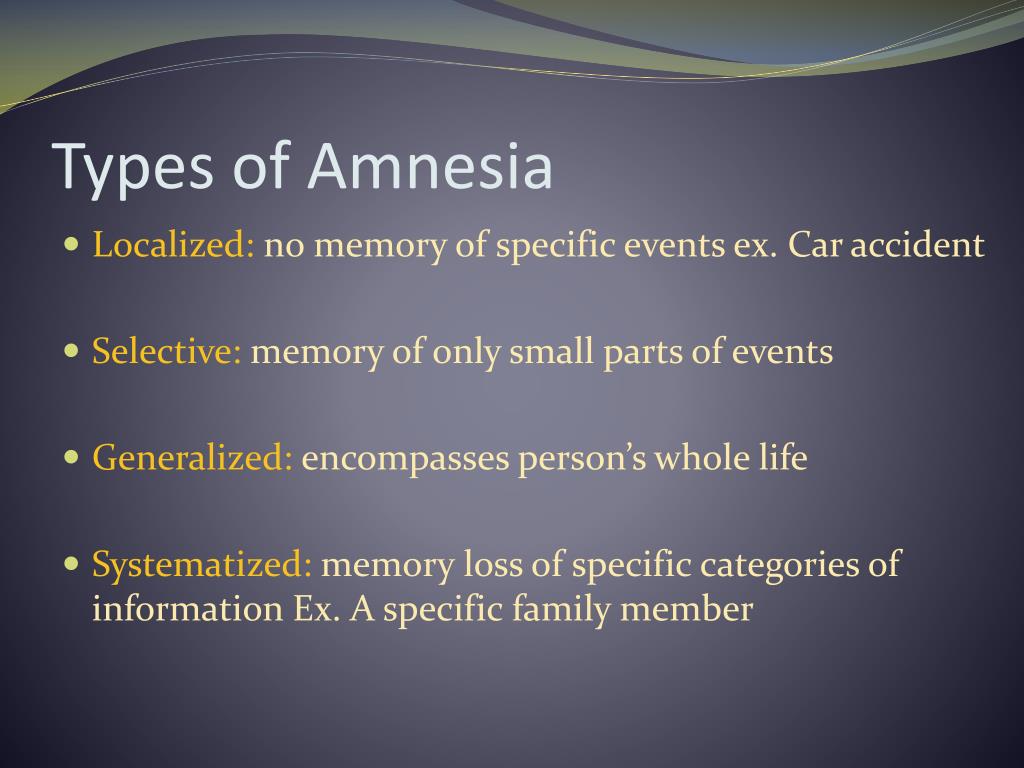

Retrograde amnesia: In some ways the opposite of anterograde amnesia, retrograde amnesia is when a person cannot remember events that occurred before their trauma, but they can remember what happened after it.
BOTH TYPES OF AMNESIA FULL
The person will have their full memory from the time before the injury. This usually results from brain trauma, such as a blow to the head that causes brain damage.
BOTH TYPES OF AMNESIA PROFESSIONAL
A licensed medical professional should be consulted for diagnosis and treatment of any and all medical conditions. The information provided herein should not be used during any medical emergency or for the diagnosis or treatment of any medical condition. This site complies with the HONcode standard for trustworthy health information: verify here. Learn more about A.D.A.M.'s editorial policy editorial process and privacy policy. is among the first to achieve this important distinction for online health information and services. follows rigorous standards of quality and accountability. is accredited by URAC, for Health Content Provider (URAC's accreditation program is an independent audit to verify that A.D.A.M. Low levels of important nutrients or vitamins, such as low vitamin B1 or B12Ī.D.A.M., Inc.Illness that results in the loss of, or damage to brain tissue or nerve cells, such as Parkinson disease, Huntington disease, or multiple sclerosis.ECT (electroconvulsive therapy) (most often short-term memory loss).Overuse of medicines, such as barbiturates or ( hypnotics).Brain infections such as Lyme disease, syphilis, or HIV/AIDS.Alcohol or use of prescription or illegal drugs.

Common types of dementia associated with memory loss are: Dementia also affects thinking, language, judgment, and behavior.


Cancer treatment, such as brain radiation, bone marrow transplant, or chemotherapy.Memory loss may result from a new injury to the brain, which is caused by or is present after: A problem in any of these areas can lead to memory loss. Many areas of the brain help you create and retrieve memories. To determine a cause, your health care provider will ask if the problem came on suddenly or slowly. Memory loss can be caused by many things. Such memory loss is due to other diseases. But normal aging does not lead to dramatic memory loss. It is normal to have some trouble learning new material or needing more time to remember it. Normal aging can cause some forgetfulness.


 0 kommentar(er)
0 kommentar(er)
